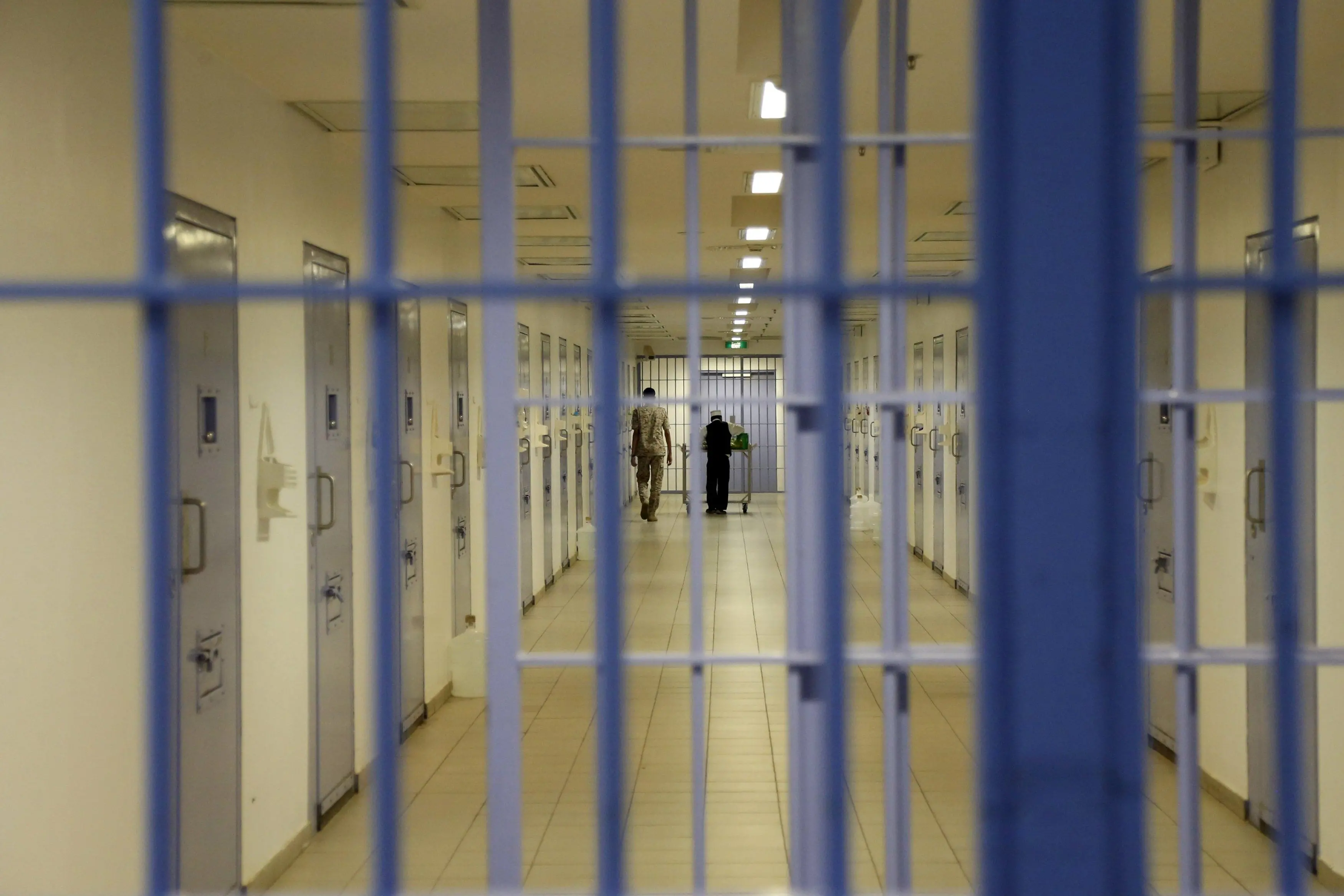PHOTO
TABUK — Behind the walls and doors of prisons, Saudi women are rapidly advancing in jobs that come with their fair share of psychological challenges and professional hardships. Female prison officers have excelled and have proven merit and efficiency in carrying out a pivotal security role.
Three prison officers at the Women’s Prison in Tabuk, who spoke to Al-Riyadh newspaper, shared their professional and personal experiences carrying out a job not many women consider doing.
After working in the military for 16 years, Staff Sgt. Khadija Al-Atawi says she is proud of fulfilling her national duty by serving her country and wants to continue to work in a security posting. She recalled an adjustment period where calls of “warden” often caught her off guard.
“The crudeness of the vocabulary and expressions that we hear from inmates takes time to get used to. Things have changed though, “warden” has been replaced with “military supervisor” (as part of a broader effort to make the job more appealing),” she said.
Staff Sgt. Al-Atawi believes whatever the vocabulary that describes their role inside the four walls of a prison, Saudi society is opening up to the idea of women working in the security sector. And despite public opinion, she talked about the hard work and rigorous training women working in the security sector undergo.
“Specialized and intensive periodic training that I and other women received in the military helped us prepare to deal with the various problems we face in prisons. We also hone our expertise and try to show that a prison environment is of peace and stability,” she added.
Pvt. Fatima Marzouk, military supervisor, said her decision to become a prison officer was not an easy one as she feared how her family would react. “There was both pressure and disapproval from my family and community as they never believed that I’ll be able to bear the burdens of working in a security facility. I finally decided to go ahead with it when I saw a segment on TV featuring Nouf Al-Otaibi, director of the Directorate General of Prisons for women,” she said.
“She spoke about correcting misconceptions about prisons and it made me realize that working in prisons wasn’t as bad as people make it seem. I am happy with what I gained in terms of experience through training and continuous development. I also benefited from the 3-month prison rotation I was part of as I gained a lot of personal skills, most notably self-confidence and it also reinforced in me the principles of commitment and discipline,” she added.
Psychologist Fatima Al-Rabi spoke about the importance of dealing with prisoners from a humanistic approach, something both Al-Atawi and Marzouk also believe in. A more gentle approach, she argued, is key to getting prisoners to cooperate and successfully rehabilitate so they can rejoin society.
“Regardless of the nature of the crime that brought her to prison, dealing with an inmate must be in accordance with her condition and psychological state. The psychological aspect of the inmate is a key factor to acceptance and cooperation for rehabilitation and reform,” she said, adding the majority of inmates suffer some form of psychological trauma when they first arrive to prison but due to follow-up care they overcome their initial problems.
The official spokesman of the Directorate General of Prisons Brig. Gen. Ayoub Bin Hijab said he was proud of the work his colleagues put in to their jobs and spoke about a specialized center the Directorate General of Prisons recently opened for the development of capabilities and skills of employees. “This center extends its services to include ministries and state institutions. So, all those seeking to take advantage of the great experiences we have on offer are welcome to join,” he said.
© The Saudi Gazette 2017





















